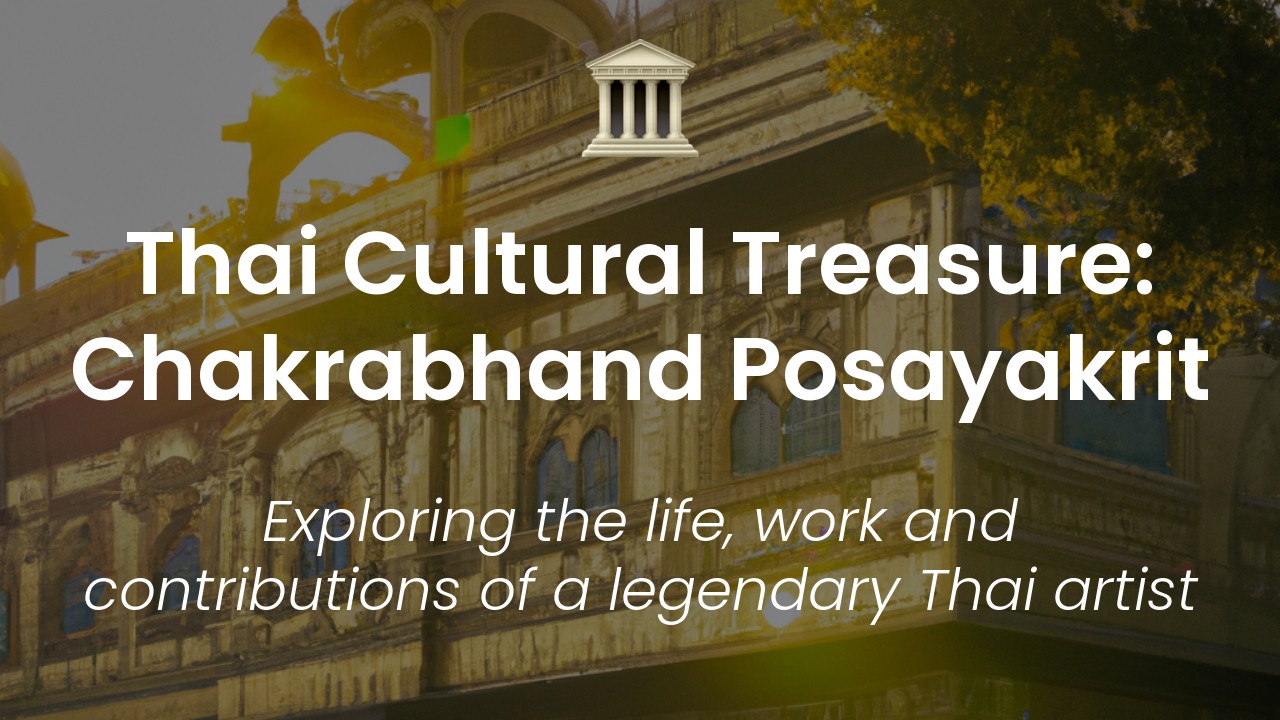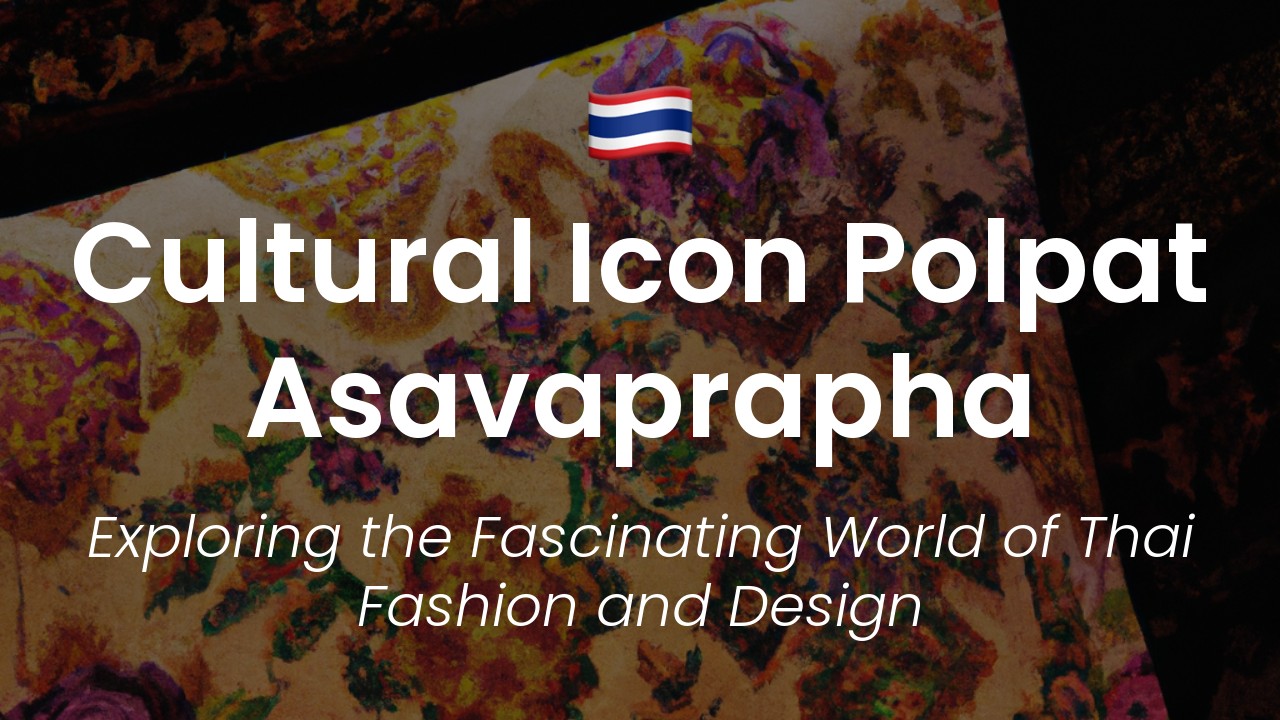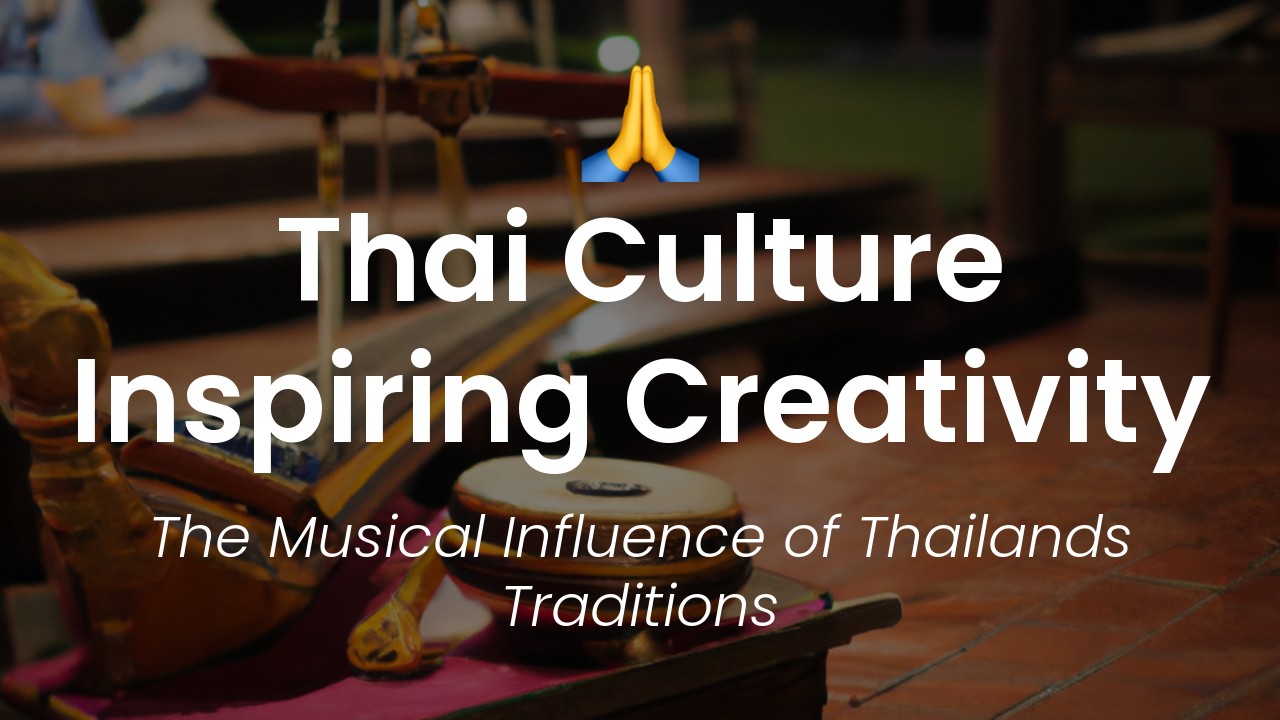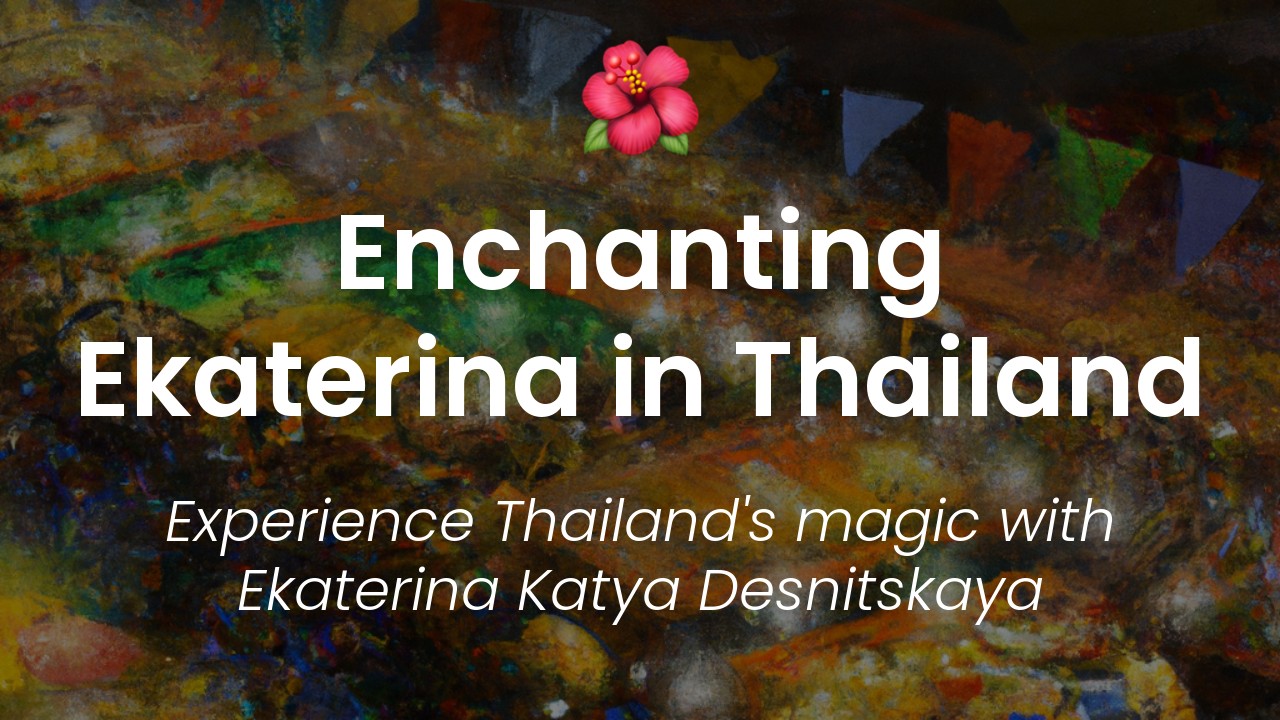Greetings to all my dear readers, I am Sirinya, and I am back with another exciting blog post about Thai culture and heritage. Today, I want to share with you all about one of Thailand's greatest treasures, the legacy of Chakrabhand Posayakrit.
Chakrabhand Posayakrit is a remarkable figure in Thai literature, music, and drama. His works serve as a reflection of Thai culture and history, creating an opportunity for both Thais and foreigners to gain a deeper understanding of the country's tradition and customs. Chakrabhand was known for his commitment to promoting Thai culture, and his works continue to inspire audiences around the world.
Chakrabhand Posayakrit was born on September 5th, 1930 in Bangkok, Thailand. He was the eldest son of Prince Sombatjatusripitak and Mom Sangdaw. Throughout his childhood, he was exposed to Thai arts and culture by his parents, who were both respected scholars in their respective fields. Chakrabhand's love for arts and culture continued to grow as he pursued his studies, which eventually led him to become one of Thailand's most important cultural ambassadors.
In this article, I want to take you all on a journey through the life, works, and legacy of Chakrabhand Posayakrit. We will delve into his contributions to Thai literature, music, and drama, and explore the impact they have had on Thai culture. Additionally, we will look at the achievements and awards he received during his lifetime, showcasing his importance as a national cultural treasure. So, let's start our journey into the world of Chakrabhand Posayakrit and discover what makes him such a remarkable figure in Thai culture.
Who is Chakrabhand Posayakrit?
If you love reading classic Thai literature, you must have come across the name Chakrabhand Posayakrit. Considered as one of the greatest literary figures of Thailand, Chakrabhand's work has made an indelible mark on Thai culture, and his poetry and writings remain influential to this day.
Chakrabhand was born on 5th August 1930 in the central Thai province of Suphanburi. He grew up in a culturally rich environment that nurtured his interest in literature and philosophy. In 1953, he received a degree in Teaching Thai Language and Literature from Chulalongkorn University in Bangkok. He furthered his education and earned a Master's degree in Philosophy, majoring in Art History, from the University of London. From there, he went on to study for his Ph.D. in Literature at the University of Wisconsin in the US.
After completing his education, Chakrabhand returned to Thailand, where he began his career as a writer, poet, and educator. He was appointed professor and director of the Institute of Language and Culture for Rural Development at Kasetsart University in Bangkok, where he spent many years teaching and researching Thai literature.
His Contribution to Thai Literature
Chakrabhand's literary works spanned a range of genres, including poetry, literary criticism, drama, and short stories. His most famous works include the epic poem "Khun Chang Khun Phaen" and the novel "Rattnakosin." He was known for his wit, humour, and sharp social commentary, which he blended seamlessly into his writings.
Chakrabhand's writings often explored themes such as love, loyalty, society, and politics. His works were inspired by traditional Thai culture and history but written in a modern style to appeal to contemporary audiences. His unique style of writing made his works accessible to a broad range of readers, and his books continue to be popular both in Thailand and internationally.
The Impact of his Works on Thai Culture
Chakrabhand's works have had a profound impact on Thai culture, both through his poetic writing and his scholarly contributions. His works have helped to preserve and promote traditional Thai values and culture, making them accessible to new generations of readers.
His epic poem "Khun Chang Khun Phaen" is considered a masterpiece of classical Thai literature and has been adapted into numerous TV series, movies, and plays. The story is a tragic romance that explores the themes of loyalty, virtue, and betrayal. It has become an enduring symbol of Thai culture and has contributed significantly to the country's literary heritage.
Chakrabhand's scholarly writings have also been influential, helping to shape contemporary understandings of Thai literature and culture. He has published numerous articles and books on Thai literature, art, and culture, and his work has helped to elevate Thailand's status as a cultural and intellectual hub in Southeast Asia.
Recognition and Awards Received
Chakrabhand's contributions to Thai literature have earned him numerous accolades and awards. He has received several Lifetime Achievement Awards, including the prestigious Silpathorn Award from the Thai Ministry of Culture. In 2006, he was awarded the title of National Artist in recognition of his contributions to Thai culture.
In addition to his literary achievements, Chakrabhand was also a key figure in the development of Thai cinema. He made significant contributions to the film industry as a director, producer, and screenwriter, and his films remain influential to this day.
The Importance of Preserving his Legacy
Chakrabhand's cultural legacy is an important part of Thailand's heritage, and his work continues to inspire writers, artists, and scholars. It is crucial that we work to preserve and promote his legacy for future generations.
One way to accomplish this is by supporting initiatives that promote Thai literature and culture. This could involve supporting local libraries, cultural centers, and museums, or sponsoring literary events and festivals.
Another way to honor Chakrabhand's legacy is by reading and studying his works. By doing so, we can gain a better understanding of Thai culture and history and appreciate the contributions made by this great author.
Opportunities to Experience his Work
There are many ways to experience Chakrabhand's work, both in Thailand and internationally. His books are widely available in libraries, bookstores, and online retailers, and many of his works have been adapted into film, TV series, and theater productions.
If you are visiting Thailand, you can immerse yourself in the country's culture by exploring some of the many cultural sites and landmarks that inspired Chakrabhand's writings. These sites include the Grand Palace, Wat Pho, and Ayutthaya Historical Park, to name just a few.







